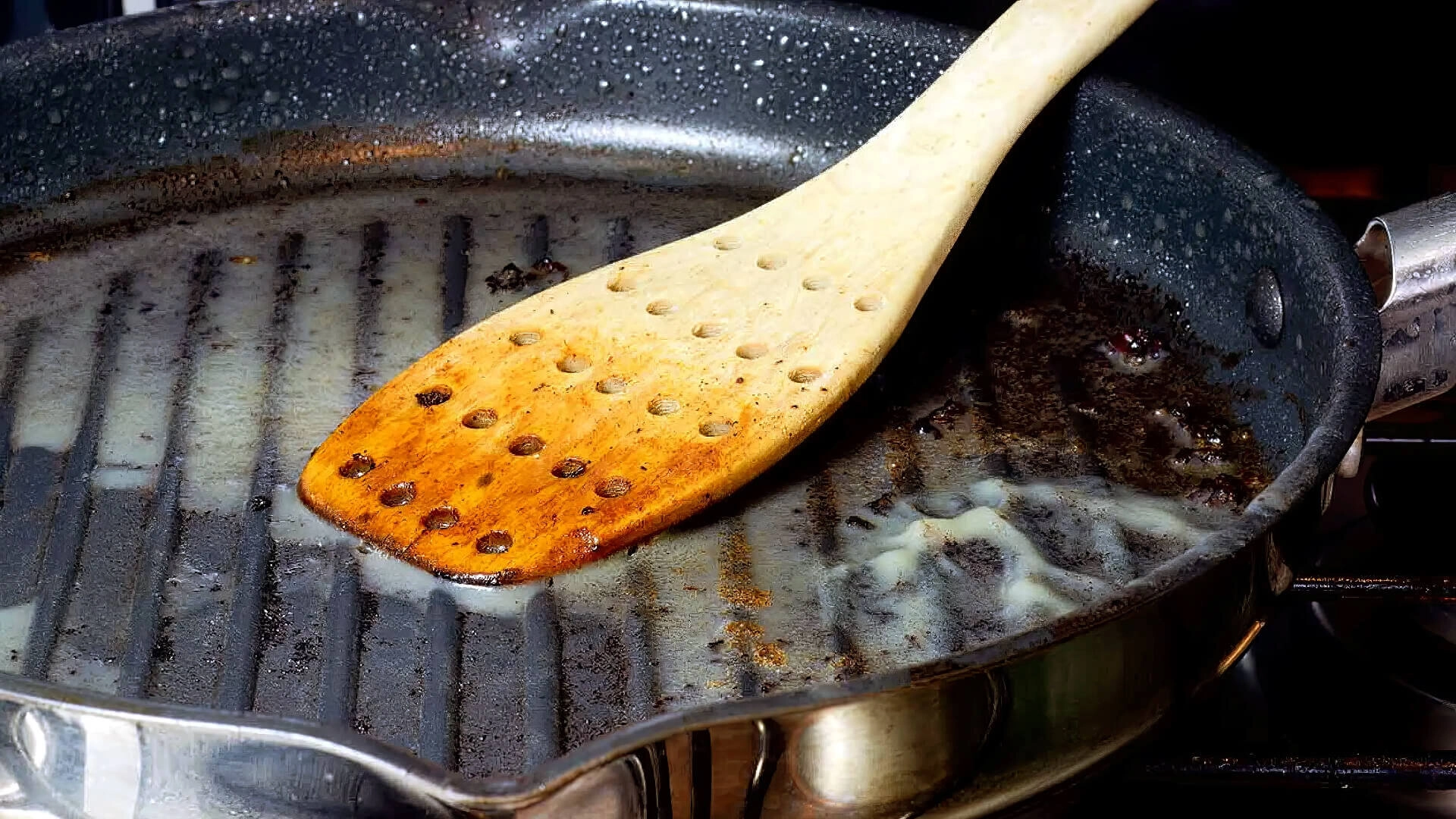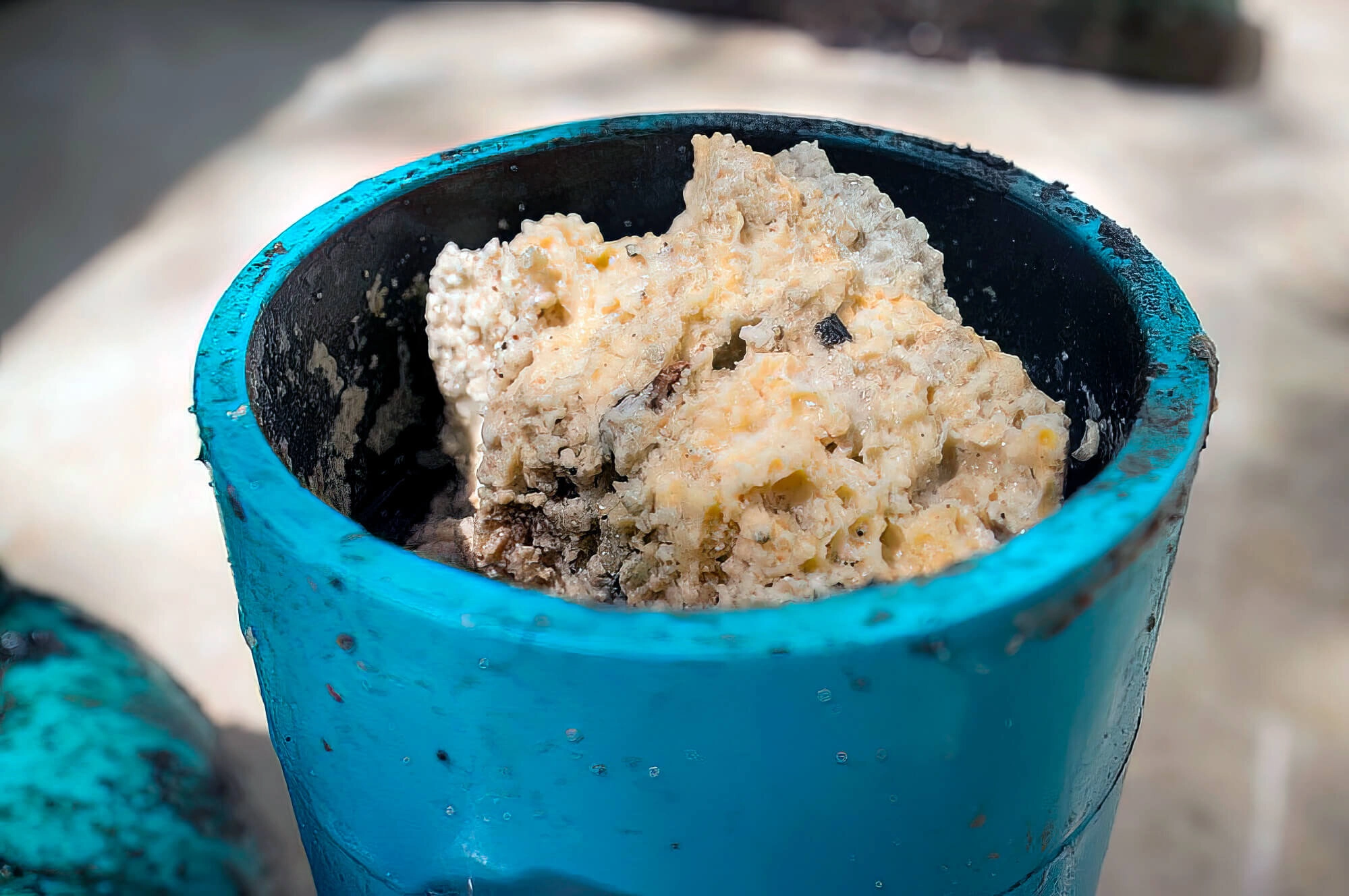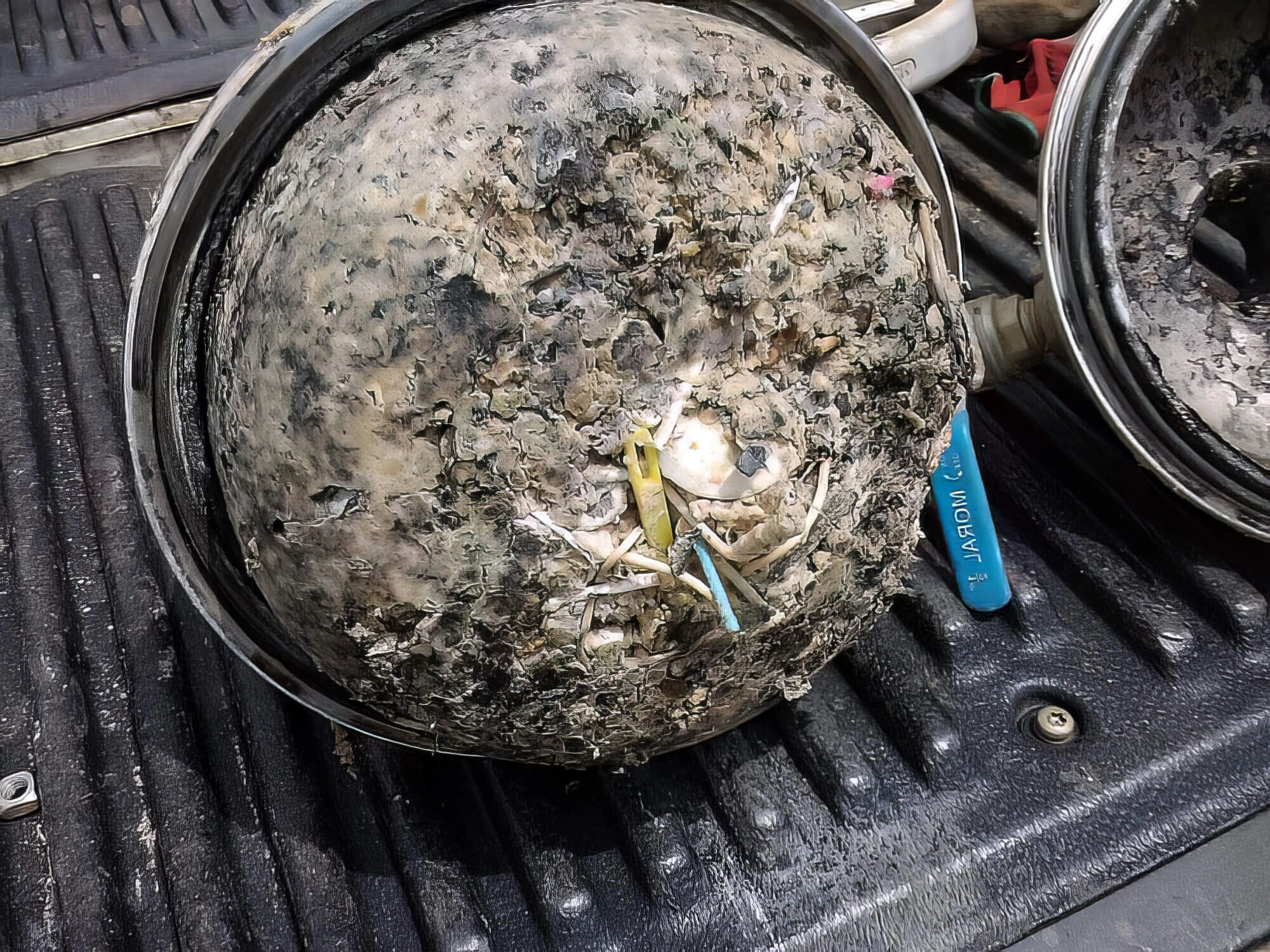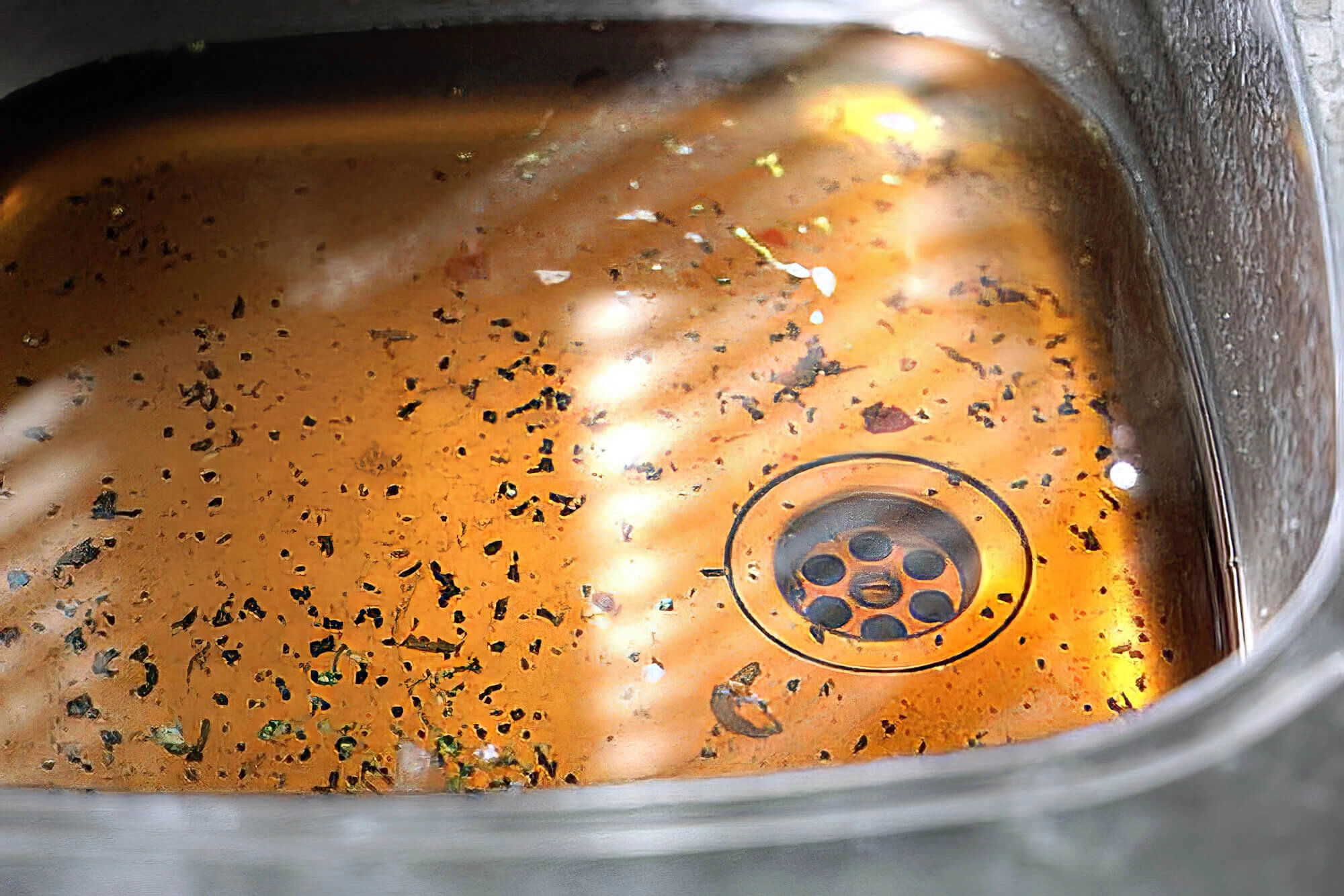While you might enjoy stir-frying, sauteing, grilling and shallow-frying meat and vegetables, just thinking about the post-cooking cleanup process can be dreadful.
Once a batch of cooking oil gets exhausted and is no longer usable for frying, it must be disposed of somewhere. And since it is a form of liquid, you may be tempted to dump it down the drain, but this shouldn’t be an option.

What might appear to be a simple trash disposal solution may only end up causing a severe plumbing concern, costing you effort and money in the long term.
For the unversed, pouring used cooking oil or grease down the drain can cause blockages in the sink and pipes while harming the ecosystem. But you may dismiss this as a fallacy and continue to opt for this disposal method.
That’s why we’re here with this guide explaining the detrimental impacts of pouring grease and oil down the sink .
What Happens When Used Cooking Oil Is Dumped Down The Sink?

Many people pour cooking oil into the kitchen sink, thinking it will flow easily through the drain without causing any problems. Additionally, they clean the dishes with soapy water, thinking that any oil that may have been collected in the pipe will easily drain.
Unfortunately, throwing used cooking oil into the drain can be harmful . This is applicable not just to the pipes in your home or apartment building but also to the entire sewer system and the wastewater treatment facility in your region.
People must realise that oil and grease have different properties than water or other liquid. When the oil is extremely hot, it stays in liquid form. However, when it cools down and accumulates in the pipe, it can solidify over time and coagulate .
Now, minor sewer clogs are most commonly caused due to cleaning agents, rusted pipe systems, and other decaying garbage.
So, even if a bit of grease is thrown into the mix, it causes a severe blockage. The grease will react with these materials and form a new soapy, waxy residue that becomes sticky and expands — aka fatberg.

On repeating this disposal, the solids get larger, narrowing the dimension of your pipe. Ultimately, the pipe gets choked and limits smooth and rapid drainage. And if the oil clogs in your drain have been building up for years, it will take a lot of time to clear them out .
People who lived before you might have also drained oil in the sink, further complicating matters. You can follow this simple step: allow your stock of conserved cooking oil to accumulate over time before delivering it to a local group or facility that recycles oil deposits.
If you can’t locate a place to recycle your old cooking oil, just let it solidify before throwing it away — the garbage is a far better option than the drain . And make sure to clean off your cookware with a clean cloth to soak up any extra oil before washing it in the sink.
How Is Improper Cooking Oil Disposal Dangerous?

When you pour the cooking oil into the kitchen sink pipe, it makes its way into the local sewer system. And even a tiny amount of grease can harm your pipelines and the drainage system .
Here, it further mixes with the wastewater of all the areas that contain all sorts of dissolved compounds. When the unsaturated fats from your food reach the drains, they degrade into fatty acids and glycerol, which bond with these compounds to form a soapy complex that lingers in the sewage system.
The fatty deposits of “soap” cling to the walls of the pipes, forming waxy “fatbergs” of massive sizes . This will restrict the flow of wastewater in the sewage pipes and cause a dangerous situation that affects everybody in the neighbourhood.
When overfilled, wastewater will go back into the pipelines and your drainage system. Fatberg concentrations can also obstruct water treatment operations, threatening the ecology and the water system in general.
What Can You Do Instead: Your Solution!
To avoid plumbing problems like clogged pipes , fatberg accumulation in sewage systems and environmental harm, you must follow a rule religiously. It would be best if you disposed of cooking oil in an acceptable, ecologically-friendly manner .
Instead of pouring leftover oil down the drain after you complete cooking, let it cool. Then transfer it into a resealable container, such as a glass jar or a coffee can, to save for recycling.
Fixed Fast Plumbing is an industry leader in emergency plumbing. We have been in the industry for years supplying high-quality drainage services in Sydney and its neighbouring regions.
So, if you have a clogged pipe and drain, our expert plumbers can help clear the blockages. We’re qualified and insured to give top-quality customer service like no other. Call us today to speak to our friendly team!